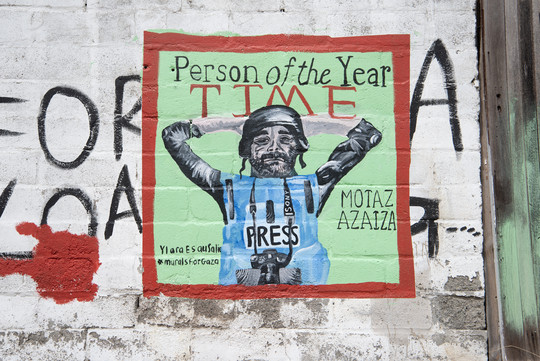The war in Gaza has sparked polarisation in the media across the world and, in too many cases, journalists have been subjected to retaliation if perceived as supportive of the Palestinian cause or critical of the Israeli government.
According to data collected by the NWU, more than a third of the targets of retaliation were Muslims or people of Middle Eastern or North African descent. As the report highlights, retaliation can come from leaders inside the workplace or from outside individuals or interest groups – A worrying pattern that not only threatens honesty in reporting but also shows problems in how the media industry supports diverse voices.
These retaliatory actions take various forms, from direct harassment and firing staff to subtle censorship within media groups. Journalists who are perceived as supportive of Palestine or critical with the Israeli government risk losing their jobs or being pushed aside at work.
Among the testimonies gathered by the NWU’s investigation is the case of Palestinian journalist Zahraa Al-Akhrass, who was on maternity leave when Canada’s Global News fired her for social media posts that included the hashtags #freepalestine, #gazaunderattack and #gazagenocide”.
Another case that sparked outrage in Australia but unwavering support from the Media Entertainment Arts Alliance’s (MEAA) membership is that of Lebanese Australian journalist Antoinette Lattouf, whose one-week contract as a substitute host for the ABC Sydney morning radio show was cancelled after she posted a Human Rights Watch report accusing Israel of using starvation as a weapon.
Retaliatory acts against journalists not only hurt free speech, but could also spur self-censorship, as media workers are scared to speak out and . “While the concept of objectivity has been used to reinforce dominant narratives as normal, reasonable, and neutral, the perspectives of marginalised groups are more likely to be seen as fringe or biased, [...] often failing to publish stories that hold power to account,” reads NWU’s report.
“As a member of the IFJ, the NWU has stood for press freedom and against political targeting of media workers since the union’s founding in 1981,” said NWU President Larry Goldbetter. “Now, we are witnessing how a coercive and retaliatory environment within the media industry can give way to the arbitrary and violent repression of the press, even in a U.S. context. It has never been more urgent to stand in solidarity with our Palestinian journalist colleagues who have been targeted with extreme violence simply for doing their jobs.”
IFJ General Secretary Anthony Bellanger said: "Journalists must be allowed to do their work without fear of reprisal or censorship, especially when their reporting serves as a vital information source for the global community. We call on media employers to uphold newsroom independence and protect their journalists.”
Download NWU’s report: 'Red Lines: Retaliation in the media industry during the war on Gaza'.

